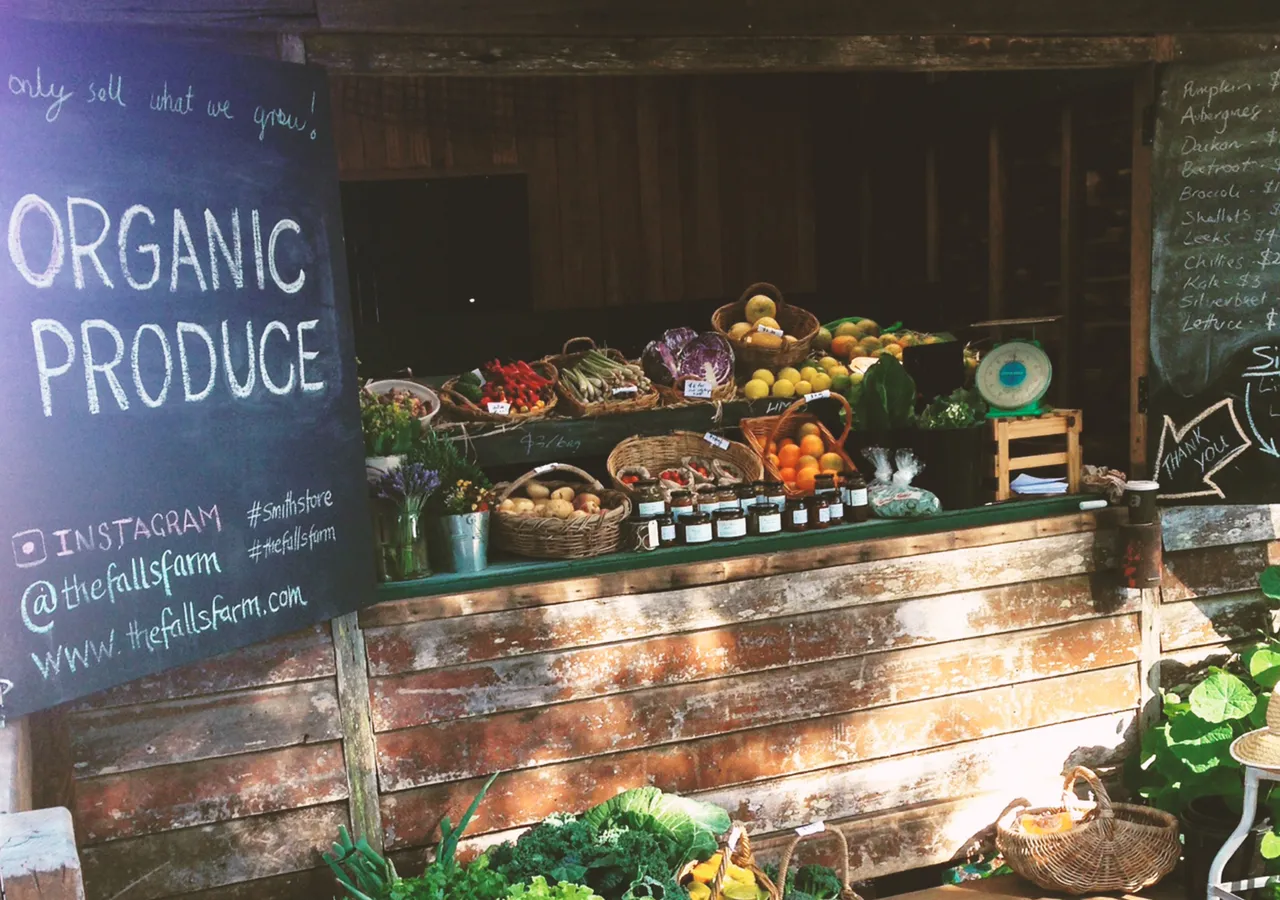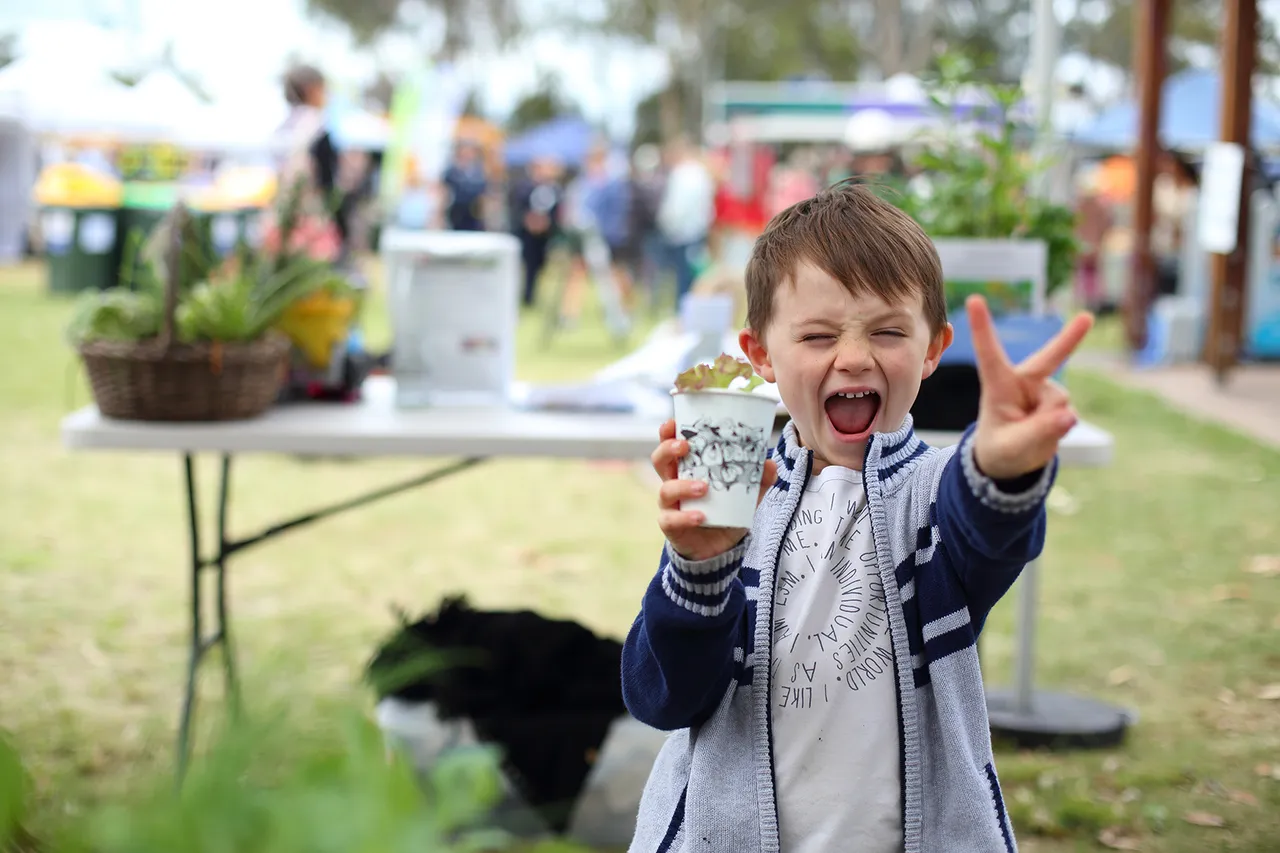Farming in harmony with nature: The Falls Farm

From Gourmet Traveller magazine to the plates of Brisbane's top chefs, The Falls Farm is renowned for its fresh, nutrient dense, healthy produce.
Set in an idyllic Mapleton location between two of the Sunshine Coast's most spectacular national parks, The Falls Farm is a remarkable tale about farming in harmony with nature.
The sensitive landscape includes Pencil Creek which runs over Mapleton Falls. There's an amazing diversity of birdlife, protected eucalypts and an abundance of wildlife including tusked frog and blue claw crabs.
In just six years, a local family has converted the property from an overgrown small cropping farm that had not produced for 18 years to a stunning example of regenerative agriculture in action.
Famers for climate action
Farm Manager Christine Ballinger, says running the property is truly a family affair with Christine's partner David, son Ben and daughter-in-law Jess as well as Jess' parents Peter and Val all taking on various roles from sowing to deliveries to maintenance.
The passion and hard work of the family has transformed the landscape, which now produces an abundance of bespoke produce, seasonal family favourites, orchard fruits, herbs and flowers.
A recognised Farmers for Climate Action site, The Falls Farm is part of a nation-wide movement of agricultural leaders and rural Australians working to ensure farmers are a key part of the solution to climate change.
"When we first started, it took us about 18 months to get to one of the boundaries due to a bad environmental weed issue," says Christine. "We did a lot of planning, working with permaculture experts, soil people, botanists and land care groups to determine the methodology we were going to use."
Healing the planet through regenerative agriculture
Even before they heard about regenerative agriculture, it was found that much could be learned from observing the property and its surrounding environment.
"You have to spend enough time in the landscape to understand the best way to do things. Regenerative agriculture practices help to keep carbon stored in the ground. By default, we found our way to that because that's what works best," Christine said.
Agriculture is responsible for approximately 11% of global greenhouse gas emissions. Regenerative agriculture supports soil health and aims to improve the resources it uses rather than destroying or depleting them.
Regenerative systems pioneer Charles Massy says "regenerative agriculture is the best way of pulling carbon down and burying it in the soil. It can heal and save the planet and renew human health at the same time."
Nurturing the soil and biodiversity
There are now tens of millions of hectares of land under the generative method, mostly small scale farms like The Falls Farm, run by families. Market gardens at The Falls Farm are no-till, leaving root systems in the ground so soil integrity is not disturbed in bed preparation or by harvesting.
Soil is enriched with compost and green manure crops. Beds are rested between planting to allow nourishing inputs to work their magic. Using long bladed planting knives, small holes are created in the mulch into which the seedling is placed. The minimal approach to soil disturbance and compaction helps retain the soil's biome and strcuture .
Alongside the market garden beds are rows of comfrey, with hedge rows of herbs, annuals and perennials.
"Whether you're a backyard gardener or small scale operator, one of the biggest challenges is coming to terms with weeds being beneficial," Christine says. "Weeds enhance the diversity in the landscape. Bare ground is dead ground."
Local species of flora were reintroduced to create vegetation corridors for wildlife, hence the abundance of fauna that now calls The Falls Farm home.
Local, organic, fresh produce…delivered
The property boasts seven market garden rooms including one growing 1500 asparagus crowns, harvested at a rate of 15 kilograms per day at the peak during December.
Prior to Covid-19, 90% of farm output was highly specialised produce such as baby kohlrabi and celtuce for top restaurants in Brisbane and beyond. The closure of many restaurants has driven the need to diversify to more traditional crops suitable for retail sales such as carrots, beetroot, kale, lettuce, pumpkin, spinach and snow peas. The produce is now destined for The Falls Farm boxes, available for online order and pickup or delivery to the Sunshine Coast hinterland and Brisbane.
With this year being the International Year of Plant Health and "biodiversity" the theme for World Environment Day on June 5, there's never been a better time to embrace regenerative agriculture, small scale farming and locally grown produce.
A soil health advocate, Christine says that backyard gardeners or commercial producers can begin transitioning to a more regenerative approach by disturbing the soil less in their growing practices. For the home gardener, this can be as simple as using a broad fork to aerate the soil rather than turning it and using a rake to spread additives instead of digging them in.
Christine suggests home gardeners or small plot farmers visualise healthy soil as:
- A living environment, richer in species diversity than what is above the ground
- A complex chemical system (although the word "chemical" can have nasty connotations, soil chemistry is key) with just enough water
- 'Communication' systems between plants, invertebrates and the soil
- A breathing system where open spaces are critical for plant life
"Regenerative farming is a solution to so many challenges of our time," says Christine. I often think about the past custodians of the land and what they left behind. It is beholden to us to look after this land, to farm in the best way we can to store carbon in the ground and produce nourishing, healthy local food for people to enjoy."
Veggie boxes can be ordered from thefallsfarm.com
An abundance of fresh produce and farmers markets on the Sunshine Coast makes it easy to support our local growers. Remember when you are purchasing, to ask questions like "where did this produce come from?", and it is it local, free range, fair trade, low spray or farmed sustainably.
Check out our previous story Building a locavore movement: supporting local producers on the Sunshine Coast for Living Smart's guide to supporting local growers.







